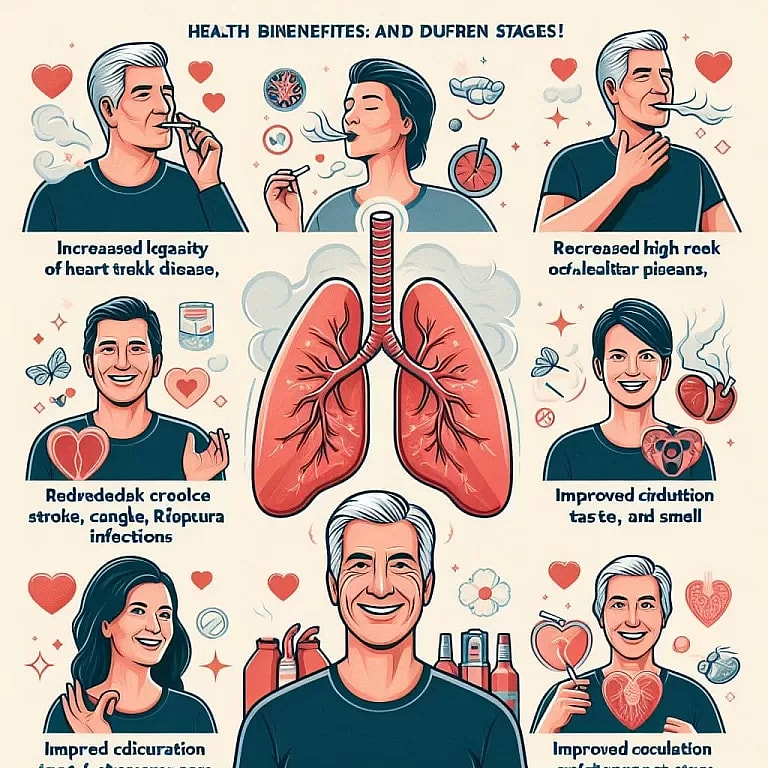smoking
**Smoking: Comprehensive Overview**
Smoking, the inhalation of tobacco smoke, poses significant health risks, affecting multiple organs and systems in the body. The addictive nature of nicotine in tobacco products perpetuates smoking habits, leading to a range of adverse effects.
**Health Consequences:**
* **Cardiovascular Disease:** Increased risk of heart attacks, strokes, and peripheral artery disease due to nicotine-induced blood vessel damage and inflammation.
* **Cancer:** Acts as a major risk factor for numerous types of cancer, including lung, mouth, throat, and pancreatic cancer, attributable to the presence of carcinogens in tobacco smoke.
* **Respiratory Diseases:** Exacerbates asthma, bronchitis, and emphysema by damaging the airways and reducing lung function.
* **Other Effects:** Linked to premature aging, cataracts, gum disease, and impaired immune response.
**Smoking Cessation:**
Quitting smoking is crucial for improving health outcomes. Quit smoking medications (nicotine replacement therapy, varenicline, bupropion) and behavioral therapies have proven effective in supporting smoking cessation efforts. Seeking support from quitline services or counseling can also enhance quit success.
**Benefits of Quitting:**
* **Immediate Improvements:** Reduced risk of heart attack, improved blood pressure, and enhanced lung function within days to weeks of quitting.
* **Long-Term Health Benefits:** Significantly reduced risk of chronic diseases, including cancer and cardiovascular events, over time.
* **Financial Savings:** Quitting can save significant amounts of money spent on cigarettes.
**Prevention and Public Health:**
Comprehensive public health campaigns aim to discourage smoking initiation and promote smoking cessation. This involves:
* **Smoking Bans:** Restricting smoking in public places to protect non-smokers from secondhand smoke exposure.
* **Tobacco Taxes:** Increasing taxes on tobacco products to deter smoking and generate revenue for prevention programs.
* **Education and Awareness:** Providing information about the health hazards of smoking and promoting healthy lifestyle choices.
Understanding the health consequences of smoking and the benefits of quitting is crucial for promoting smoking cessation. Public health efforts play a vital role in reducing the burden of smoking-related diseases and promoting healthy communities.
Benefits of Quitting Smoking and a Quit Smoking Timeline.

Quitting smoking can lead to many long term benefits for your health. But you may experience some short-term withdrawal symptoms, such as headache, constipation, and insomnia. Speak to a doctor if you need help managing these symptoms. Smoking can create…
What Happens When You Quit Smoking?

Even if you’ve smoked for many years, you can reverse the harmful effects of smoking and experience health benefits from the first hours you stop smoking to the decades after you quit. Smoking releases thousands of chemicals into your body.…




